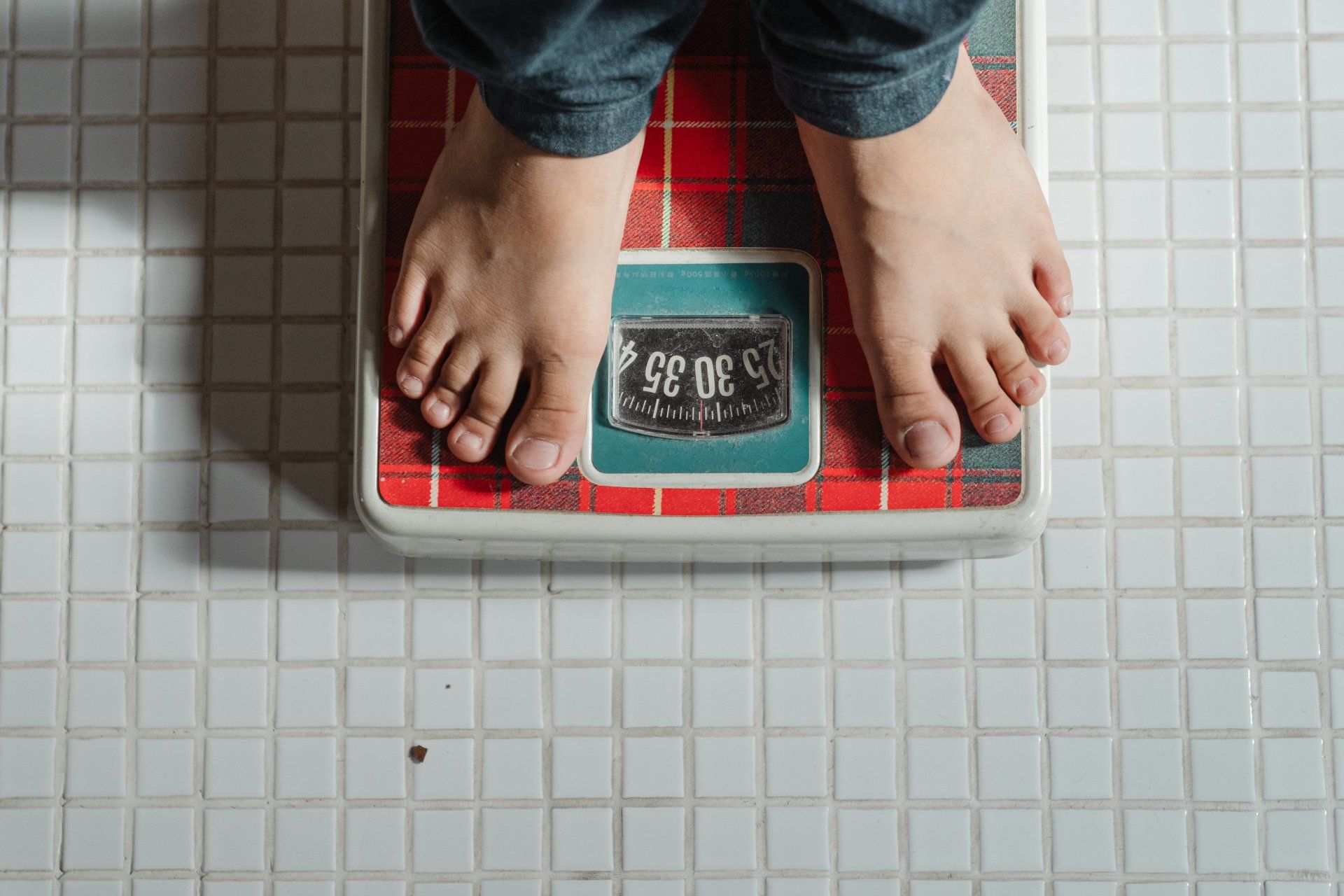Blog

In our lives, comfort zones serve as sanctuaries of familiarity and safety, offering a sense of stability in an ever-changing world. While there's undeniable value in the routines and habits that structure our days, there's also a hidden cost to confining ourselves within these comfortable boundaries. The true essence of life, with its myriad opportunities for growth, learning, and joy, often lies just beyond the edge of what we know and where we feel most at ease. Embracing the unknown, therefore, isn't merely an act of adventure; it's a profound form of self-care that invites us into a world of potential and transformation. The Paradox of Comfort Zones Our comfort zones, while soothing and familiar, can paradoxically become prisons that limit our growth. The routines that once brought solace can gradually dull our senses to the vibrant tapestry of life awaiting outside their borders. It's within this realization that the seeds of change are sown. The decision to step beyond our comfort zones is akin to opening a door we've long ignored, behind which lies uncharted paths laden with possibilities for discovery and renewal. Embracing Vulnerability and Change Venturing into the unknown requires vulnerability—a willingness to face the uncertainty of new experiences with openness and courage. This journey often begins with a single step: a conscious choice to do something differently, no matter how small. Whether it's trying a new hobby, altering our daily routines, or engaging with new people and ideas, each act of bravery brings us closer to a fuller understanding of who we are and what we're capable of achieving. The transformative power of stepping out of our comfort zones cannot be overstated. My own journey taught me that what feels like a potential fall into the abyss is, in fact, a leap towards self-empowerment. The moment our safety bubble bursts, we're offered a stark choice: to retreat into the shadows of what was or to move forward into the light of what could be. Choosing the latter opens us up to a world of self-care practices that nourish not just our bodies but our spirits—inviting new passions, interests, and joys into our lives. The Challenge of New Beginnings This week, I challenge you to join me in the practice of embracing something new. The act of incorporating a novel element into your routine, no matter how trivial it may seem, is a declaration of your willingness to grow and evolve. It's an acknowledgment that life's richness is found not in the repetition of the known but in the exploration of the unknown. Consider this your invitation to step out of your comfort zone and into a journey of self-discovery. Let each new experience be a step toward a more enriched, vibrant version of yourself. Remember, the goal isn't to radically overhaul your life overnight but to introduce small, manageable changes that collectively lead to significant transformation. As we venture into this exploration together, share your experiences, successes, and even the fears you overcome. Your journey of stepping beyond the familiar is not just about personal growth; it's a beacon of inspiration for others to follow. Let's collectively embrace the unknown, discover new passions, and redefine what self-care means in our lives—beyond the comfort zones that once defined our limits. Stay up to date with my latest posts and insights by subscribing to my newsletter for FREE.

In our journey through life, we often encounter moments that test our ability to manage independently. Today, we're addressing a challenge that resonates with many: the act of asking for help. It's a hurdle fraught with complexity, particularly for those who have struggled with it before. Yet, it's a crucial aspect of self-care, one that requires our attention and courage. Let's dive into five actionable tips to empower ourselves to seek support with confidence. 1. Cultivate Self-Compassion The first step towards asking for help is to treat yourself with kindness. Recognizing that seeking support is a testament to your strength, not a weakness, is fundamental. You are worthy of the help you need, and acknowledging this can transform your approach to seeking assistance. 2. Clearly Identify Your Needs Understanding precisely what you need assistance with can significantly ease the process of asking for help. Specificity not only clarifies your request but also makes it easier for others to provide the support you need. Remember, it's entirely acceptable to ask for exactly what you need, without diluting or disguising your request. 3. Seek a Trusted Ally The importance of having a supportive network cannot be overstated. Identify someone in your life—a friend, family member, or mentor—with whom you feel safe and comfortable. Opening up to a trusted ally can not only provide you with the help you need but also strengthen your bond with them. 4. Embrace Vulnerability Vulnerability is a powerful tool for connection. By sharing your genuine feelings and struggles, you invite others to understand your situation more deeply. This honest exchange can demystify the process of asking for help, making it a less daunting experience. 5. Take Gradual Steps If you're not accustomed to seeking help, the idea of doing so can feel overwhelming. Start with small, manageable requests and gradually increase as you become more comfortable with the process. Each step, no matter how minor it may seem, is a leap towards embracing the support system around you. Empowering Ourselves to Seek Support As nurturers and caregivers, it's natural for us to focus on providing for others. However, it's equally important to remember that receiving care and support is not just acceptable but necessary. Let's empower each other to seek help when needed, understanding that it's a sign of strength and self-awareness. You're not alone in this journey. I'm here to support you, encouraging you to take that step towards asking for help. Together, we can navigate the challenges that come our way, supporting and uplifting one another in the process. Stay up to date with my latest posts and insights by subscribing to my newsletter for FREE.

In the relentless pursuit of self-improvement and caring for others, it's all too easy to overlook the sanctuary of our own minds. As a mindset life coach, my mission extends beyond surface-level self-care; it's about delving into the depths of your thoughts, offering them the nurturing and attention they deserve. Let's embark on a journey together to cultivate a serene mental landscape, transforming your inner dialogue into a source of strength and peace. 1. Embrace Mindfulness In the chaos of daily life, finding moments of stillness can be transformative. Mindfulness isn't just a practice; it's a gateway to presence. Dedicate time each day—whether it's through deep breathing, a nature walk, or enjoying your morning coffee sans distractions—to truly be in the moment. This simple act can significantly quiet the mental noise, allowing you to connect with your inner self on a profound level. 2. Cultivate Gratitude A daily gratitude practice can reframe your perspective, steering your focus from the shadows to the light. Each day, reflect on the aspects of your life that fill you with thankfulness. This habit not only fosters positivity but also serves as a beacon, guiding you through life's inevitable challenges with a heart full of appreciation. 3. Silence the Inner Critic Our inner critic can be our harshest judge, often holding us back with a barrage of negative self-talk. It's crucial to challenge these automatic thoughts. Are they genuinely accurate? More often than not, you'll find they're rooted in unfounded fears or outdated beliefs. By questioning and reframing these thoughts, you can begin to dismantle the barriers to your self-esteem and well-being. 4. Journaling for the Soul Journaling is more than just a method of self-expression; it's a journey to the core of your being. Regularly writing down your thoughts, emotions, and experiences can clarify your mind and soul. It offers a unique opportunity to reflect, analyze, and grow from your experiences, all while tracking your progress towards a healthier mindset. 5. Surround Yourself with Light Your environment and the company you keep can significantly influence your mental state. Make a conscious effort to immerse yourself in positivity—be it through friendships that uplift you, media that inspires you, or literature that challenges you to think differently. The energy you surround yourself with can act as fertile soil for your thoughts, allowing them to blossom into their most vibrant and constructive forms. Prioritizing Your Mental Sanctuary Self-care transcends physical pampering; it's an intricate dance of nurturing both body and mind. You've devoted ample time to others—now, it's your turn. By managing your thoughts and curating a more positive inner dialogue, you're not just surviving; you're thriving, paving the way for a life filled with joy, peace, and fulfillment. Stay up to date with my latest posts and insights by subscribing to my newsletter for FREE.

"It's not you, it's me." Perhaps one of the most clichéd breakup lines, yet when it comes to our relationship with the scale, it couldn't be more accurate. How often do you find yourself stepping on that scale, letting the number staring back at you dictate your mood, your self-worth, or even your actions for the day? If this sounds familiar, it's time for a serious conversation about breaking up with your scale. The Scale: A Toxic Relationship Weighing yourself can become an obsessive habit, one that does more harm than good. Daily weigh-ins, and for some, multiple times a day, turn into an unhealthy cycle of self-judgment and emotional turmoil. I've been there, letting those digits define my value and success. It's an embarrassing admission, but one that's necessary to address in our journey towards genuine self-care. Breaking Free with Support The journey to detach our self-worth from the number on the scale isn't one that needs to be walked alone. For me, a dedicated team of professionals, including a nutritionist and personal trainers, paved the way to a healthier mindset. Through education, encouragement, and sometimes a dose of tough love, I learned the invaluable lesson that the scale's number is just that—a number, devoid of any real meaning regarding my health or my worth. Mindset Shift: The Path to Liberation Breaking a lifelong habit is no small feat. It requires a shift in mindset, a deliberate effort to think differently about ourselves and our bodies. The scale does not define you, nor does it accurately reflect your health, your strength, or your beauty. Challenge: A Week Without the Scale I challenge you to join me in a week-long breakup with your scale. Notice the changes in how you feel about yourself and your body without the daily judgment. If the thought of this separation causes anxiety or if you're struggling with the concept, I'm here to talk. It's about taking the first step towards valuing yourself beyond a number. Embrace a Scale-Free Life The goal of Self-Care Sunday—and every day, for that matter—is to foster a relationship with ourselves based on love, respect, and genuine care, not on arbitrary measurements. Breaking up with your scale opens the door to a healthier self-image and a more joyful existence. Stay up to date with my latest posts and insights by subscribing to my newsletter for FREE.

In the hustle and bustle of daily life, it's easy to lose sight of the small moments of joy and the elements of our lives that deserve gratitude. Yet, embracing gratitude is not just an act of acknowledgment but a transformative practice that can enhance our well-being and perspective on life. The power of gratitude lies in our ability to choose to recognize and appreciate the good, no matter how small or significant those aspects may be. The Essence of Gratitude Gratitude is more than a fleeting feeling; it's a conscious choice and practice that allows us to find joy in the challenges and the simplicities of life alike. It's about shifting focus from what we lack to what we possess, fostering a sense of abundance and contentment. This shift isn't just philosophical—it's practical, affecting our emotions and overall life satisfaction. Remember, our thoughts precede our feelings, shaping our emotional landscape and how we experience the world. The Dark Times and The Light of Gratitude Reflecting on personal experiences, it's evident that periods lacking in gratitude often coincide with life's darker chapters. Whether it's loss, financial hardship, or overwhelming stress, the absence of gratitude can deepen the shadows of these challenges. However, reintroducing gratitude into daily life acts like rays of sunshine breaking through, illuminating paths of happiness and resilience previously obscured. A Simple Practice for Profound Change Gratitude can be cultivated through simple, consistent practices that encourage us to notice and appreciate the beauty around us. Here are three steps to incorporate gratitude into your daily routine: 1. Journal Your Gratitude Begin by keeping a gratitude journal. Each day, dedicate a few minutes to write down three things you're grateful for. These can range from the beauty of a sunny day to the warmth of a friend's smile. 2. Live Gratefully in the Moment Make a habit of acknowledging moments of gratitude as they occur. Whether it's appreciating a peaceful nature scene, a meaningful conversation, or a personal achievement, pausing to recognize these moments can profoundly impact your mood and outlook. 3. Express Your Thanks Actively express gratitude towards others. A simple thank you, a handwritten note, or a thoughtful message can deepen connections and multiply feelings of gratitude, enriching both your life and the lives of those around you. The Gratitude Challenge Incorporating gratitude into your life is akin to establishing any other healthy habit—consistency is crucial. Treat it with the same importance as other daily routines, and watch as your world transforms, filled with more joy and less negativity. I encourage you to embark on a gratitude practice this week. Dedicate a few moments each day to reflection and appreciation, and observe the shifts in your perspective and mood. I'm eager to hear about your experiences and the impact gratitude has on your journey to happiness. Stay up to date with my latest posts and insights by subscribing to my newsletter for FREE.

Letting go of strong emotions or people in our lives is undeniably challenging. It's a struggle that many of us face, clinging so tightly to situations that it becomes hard to breathe. I understand this struggle deeply, both through personal experience and conversations with others. The Power of Proximity Recently, a family member confided in me about feeling ignored and shunned by other relatives. It's a painful realization that those closest to us have the greatest capacity to hurt us. This closeness makes it even harder to establish the necessary distance and maintain objectivity. Recognizing that family bonds don't automatically equate to healthy relationships is crucial. Everyone views life through their unique lens, reacting accordingly, often making it difficult to grasp why they act the way they do. Yet, it's possible to create the needed distance, whether mentally, physically, or emotionally. Letting Go as Self-Care Letting go is more than an action; it's a mindset, an essential aspect of self-care, and arguably one of the most challenging skills to master. It's about prioritizing oneself over the actions or reactions of others. Step One: Embrace Your Emotions The first step in letting go is to allow yourself to fully experience your emotions. Identify and name them. Whether you're feeling angry, hurt, or sad, it's vital to acknowledge these feelings without reacting impulsively. Find a private space to express your emotions freely, whether it's through screaming, crying, or writing them down and then destroying the paper. It's about finding a healthy outlet for these emotions. Step Two: Change Your Thoughts Understand that your emotions are fueled by your thoughts, which often run on a loop, replaying the events that caused you pain. Remember, thoughts precede emotions. Taking control of your thoughts means actively choosing to replace negative loops with more positive or neutral ones. This step isn't about suppressing thoughts but owning them and steering them in a new direction. Step Three: Set a Time Limit Decide how long you'll allow yourself to dwell on the situation. This could range from hours to weeks. Acknowledge that the longer you cling to these feelings, the longer you'll remain in a state of distress. Setting a deadline helps in gradually moving past the pain and towards a healthier mindset. Step Four: Distract and Redirect Engage in activities that shift your focus. Having a hobby or interest can be incredibly beneficial during these times. Whether it's reading, exercising, crafting, or even binge-watching TV, the goal is to occupy your mind constructively, not to numb the pain but to redirect your energy positively. The Cycle of Healing It's normal to revisit painful emotions or situations, but each time you do, return to step one and repeat the process as necessary. The goal is to become so adept at navigating these steps that the journey of letting go becomes a natural response to emotional pain. Letting go is a profound topic, one that many find challenging. It's a path I've walked myself, and I'm here to support others through it. If you're struggling with letting go, remember, you're not alone. Reach out, and let's talk about how you can start taking better care of yourself. Remember, the journey of letting go is not just about losing something or someone; it's about gaining back your peace, strength, and joy. Stay up to date with my latest posts and insights by subscribing to my newsletter for FREE.

The Moment of Oversight In our lives, there are countless moments where we're faced with decisions that seem to tug at our intuition, whispering cautions or encouragements. Yet, how often do we find ourselves looking back in regret for not heeding those inner voices? My journey with trusting my gut has been a long one, marked by periods of keen intuition followed by moments of glaring oversight. And recently, I was reminded of the importance of this skill in a rather mundane, yet impactful way. This tale isn't about a life-or-death situation but rather a simple online purchase that went awry. I've always prided myself on being able to spot a scam from a mile away, exercising caution with the precision of a seasoned online shopper. That is until I let my guard down. The transaction seemed straightforward enough: pay upfront and drive three hours out of state to pick up the purchase. But then, silence. The seller disappeared, and with them, my money and peace of mind. The sinking feeling of realization was all too familiar—the ignored red flags, the rationalizations, and the profound disappointment in myself. The Lesson in Self-Care Reflecting on this experience, I couldn't help but link it to the broader theme of self-care. Ignoring our intuition isn't just about facing the consequences of a bad decision; it's a direct neglect of our well-being. For years, I struggled with trusting myself, often prioritizing others' feelings and opinions over my own to the point of self-compromise. This recent misstep served as a harsh reminder of the importance of listening to that little voice inside us. That voice is our guardian, subtly guiding us towards our best interests. When we choose to ignore it, we're not just making a potentially faulty decision; we're sidelining our true selves. The act of self-care is deeply intertwined with self-trust. It requires us to acknowledge and respect our intuition, understanding that it's a powerful tool for navigating the complexities of life. Strengthening the Muscle of Intuition Learning to trust your gut is akin to strengthening a muscle—the more you use it, the more robust it becomes. Neglect it, and it fades, leaving us vulnerable to life's hard knocks, which often come with much more significant consequences than a lost purchase. It's a balance, of course, between being considerate of others and prioritizing our needs. Yet, it's crucial to remember that no one has the right to make us feel guilty for listening to our inner voice. Embracing the Journey Ahead As I share this story, my hope is to remind you of the value of your intuition. It's there to protect you, to serve as your inner compass. If you've struggled with trusting your gut, know that it's a skill that can be honed and developed. And if you find yourself in need of support, remember, I'm here to help. Let's commit to better self-care by honoring our intuition, one decision at a time. Stay up to date with my latest posts and insights by subscribing to my newsletter for FREE.

Let’s be honest. We’ve all been told how much water we SHOULD be drinking. It’s like a hundred gallons a day, right? No, but some days it feels like it. It’s really like 120 ounces a day. And depending on who you ask, coffee does or doesn’t count. Diet drinks counteract the benefits of the water you drink. I know we have all seen the gazillion ads for water enhancers. We are told the benefits of drinking enough water like: Assists with maintaining a healthy weight, Boosts health and beauty, Affects energy levels, May prevent and treat headaches, And so on and on and on. Today I’m sharing my love/hate relationship with water and how I trained myself to get in a decent amount daily. These cups pictured were are just a few I've bought over the years all in the hopes I would drink the famed 120 ounces. Did it work, you ask? Sort of. I’m sharing what I learned about what works for me and what doesn’t. I hope you can find a water habit that works for you. I use different cups/bottles different times of the day. The water bottle type I use for working out. The 40 ounce cups are the ones I carry daily. The half gallon jugs are now in storage in the garage. They were just too big and the water got warm by the end of my work day. I like cold water but not ice cold. Believe me, I tried different temperatures and paid attention to what I drank more of. I always order water when I go to a restaurant even if I’m ordering something else to drink. I started with water enhancers to get in the habit of drinking water. The options go from super clean to just junk, you might as well be drinking diet sodas. Read the labels and try to start with the fewest ingredients. I did start with the ones that had vitamins and caffeine. I then moved to the cleanest. Now I rarely use any at all unless it’s something to boost my hydration. I have a peach bellini flavored hydration that I love. I cut out one cup of coffee a day in order to get more water in. I now get in 75-80 ounces a day and I can live with it. I pay attention to my body and know when I need more water. It really does make a huge difference in my energy levels. Stay up to date with my latest posts and insights by subscribing to my newsletter for FREE.
